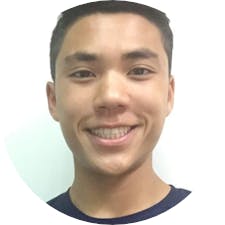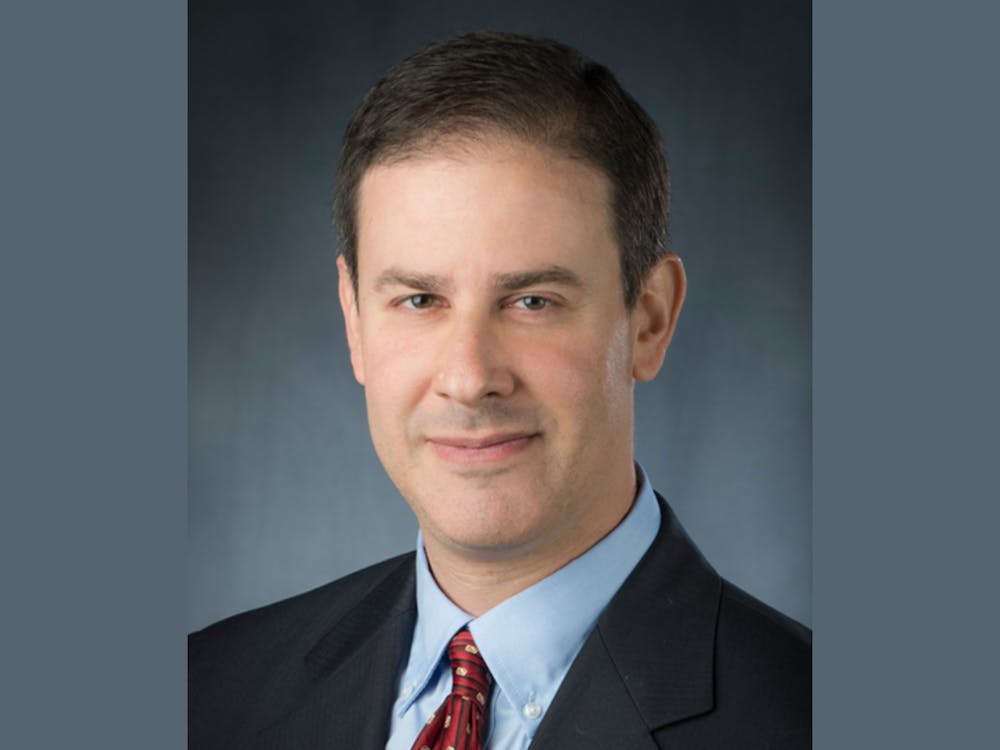In early June, as protests proliferated across the country over the killing of George Floyd by Minneapolis police officers, B. J. Rudell noticed that many of the protesters were white.
“That really hit me, as a privileged white guy, thinking, finally the country is changing. And what am I doing?” he said.
Married and the father of three young children, he didn’t feel safe physically joining the protests.
“But I needed to do something,” he said. “And I didn’t want to be a coward.”
He emailed the North Carolina Democratic Party and told them he was prepared to do whatever was necessary to elect Democrats. Then, in July, he quit his job as associate director of Duke’s Polis: Center for Politics and became a field organizer for North Carolina Democrats. Volunteering for a couple hours a week wouldn’t be enough. He wanted to go all in.
“This decision might seem rash. My Duke job was my dream job since Day 1,” he wrote in a July LinkedIn post announcing his resignation. “But leaving the sidelines has never felt more right or more necessary. After working with hundreds of students seeking to discover their political truths, I’m now focusing on mine—as it should be, given the stakes.”
Believing and following through
“I’ve never really been a fighter when it comes to politics,” Rudell told me on a call in mid-September. “I’ve been wearing armor around my partisanship for most of my life.”
After graduating from Davidson College in 1995, Rudell worked as legislative assistant for former Democratic U.S. Representative Bob Clement and then later helped with former Democratic Senator Bill Bradley’s presidential campaign. (Among his many non-political pursuits, he has written about fantasy football for SportsIllustrated.com and has spent years performing and directing improv comedy.)
In the days when he first became involved in politics, compromise was still possible, he said. He recalls that during his time on Capitol Hill, he worked with some of the most conservative senators and representatives to provide funding for historically Black colleges and universities.
The Republican Party used to be a party with conviction and ideals, rooted in notions of limited government, Rudell said. Now, it has become a party oriented solely around Trump.
“It would be frightening to me, as a Democrat, if people were so wrapped up in a Democratic candidate that they were willing to sell their morality just for power, just for influence,” he said.
During Trump’s presidency, the “armor” around Rudell’s partisanship began to corrode.
Rudell described a Sept. 6 Facebook post in which he challenged his conservative friends to “Name the line [Trump] must cross for [them] not to support him.” If he called his supporters “losers” and “suckers”? If he lost the election and refused to leave?
“No one came forward,” he said. “I have a lot of conservative friends. And very candidly, I’m angry with them. I think they’re cowards right now.”
Rudell came to Duke in September 2016. His work with POLIS has focused on increasing civic engagement, particularly among students. For the 2018 midterm elections, he created Duke Votes, a program to increase student voting. He also hosted a podcast, “The Political Student,” that tells the stories of politically active Duke students.
“I think that he really believes in younger generations, and I think that's what made him such a great fit for his role at Duke, which is working with college students,” said senior Amelia Steinbach, who said Rudell helped her find an internship on Capitol Hill. She noted that most field organizers are young and straight out of college—not married with three kids.
“I think he just has a lot of faith in our ability to make change,” she said. “He wants to be alongside our generation while we're doing that.”
Junior Katherine Gan said Rudell’s encouragement was pivotal in her decision to take a yearlong leave of absence after her sophomore year to do electoral organizing for Kamala Harris and Bernie Sanders. She wasn’t surprised when she heard of Rudell’s decision.
“He is someone who doesn’t just say things. He wants to follow through. If he feels very deeply about something, he wants to be directly involved,” Gan said.
‘A chance to be uncomfortable’
Every Friday night, Rudell meets virtually with more than a dozen volunteers. One recent discussion was about police brutality and protesting, he said. The group was a demographic hodgepodge—people of differing ages, races, genders and ideologies, including some Republicans.
Rudell enjoys “just hearing them listen to each other and talk about what all this means to them based on their experience,” he said. “I like the fact that there are spaces now virtually where people know they’re not alone.”
These are the moments Rudell cherishes. There are others, too, like when he had the chance to speak at an event with Jill Biden and told the audience: “This is not an age for bystanders. It’s an age for activists.”
Still, the job has also taken an emotional toll, he said.
“Simultaneously knowing that there’s so much pain out there, so much injustice, and that what I’m doing is just trying to scratch the surface. I’m just trying to help in a very tiny way… It feels futile and necessary all at the same time,” he said.
For the moment, he’s glad to be uncomfortable. All his life, as a “straight white guy,” he has benefitted from great privilege, he said. Now, he’s trying something new.
“I will never know what it’s like to be uncomfortable my entire life,” he said. “This is a chance to be uncomfortable for a few months.”
Get The Chronicle straight to your inbox
Signup for our weekly newsletter. Cancel at any time.

Chris Kuo is a Trinity senior and a staff reporter for The Chronicle's 118th volume. He was previously enterprise editor for Volume 117.

